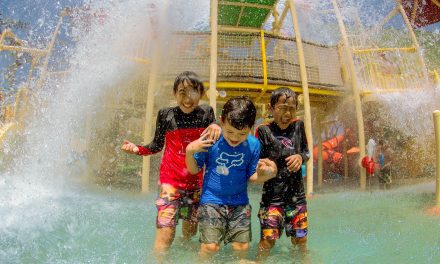Ah, Bali! Known for its lush landscapes, vibrant culture, and pristine beaches, it’s a favorite amongst travelers seeking both relaxation and adventure. But as I embarked on my own journey through this enchanting island, I found myself wondering: How can we explore its beauty while being mindful of our impact on the environment? This sparked my interest in eco-friendly island hopping activities in Bali, leading me to discover a world of adventure that celebrates both nature and sustainability.
Embrace the Beauty of Traditional Jukung Boats
One of the best ways to enjoy the coastal beauty of Bali is by hopping on a traditional Jukung boat. I still vividly remember the gentle rocking as our small group boarded one early in the morning, the sun rising just beyond the horizon and painting the sky in hues of orange and pink. The Jukung, a wooden fishing boat traditionally used by local fishermen, offers an authentic and minimalistic way to explore nearby islands.
Choosing to travel by Jukung not only reduces carbon emissions compared to larger motorized vessels but also supports local fishing communities. As we sailed across the serene waters to Nusa Penida, the guides shared stories of the ocean’s importance to their lives and the eco-conscious practices they incorporated. It was fascinating to learn about local initiatives aiming to preserve marine life and reduce plastic waste.
Tip: When booking your boat trip, look for local operators who emphasize sustainable practices and have great reviews on eco-friendliness. It’s an adventure that genuinely uplifts the local community.
Snorkeling with a Purpose
Once we reached Nusa Penida, it was time to dive into the crystal-clear waters for some snorkeling. I’ve always loved the ocean, but this experience was different. With the guidance of an eco-focused tour company, we were equipped with reusable snorkeling gear. Each piece of equipment was sanitized and meticulously maintained, reducing waste from disposable options.
As we snorkeled, we were educated on the diverse marine life thriving beneath the surface. Our guide pointed out vibrant coral reefs while highlighting efforts to protect them. I was amazed at the playful schools of fish darting between the corals, but I couldn’t help feeling a pang of sadness upon learning that many of these species are threatened due to pollution and climate change.
Practical Advice: Always use reef-safe sunscreen to protect delicate marine ecosystems. Products containing certain chemicals can harm the reefs and marine life. When in doubt, check brands that are explicitly labeled as reef-safe!
Kayaking in Serenity
The next stop on our island-hopping adventure was to kayak around the peaceful waters of Amed. I had never kayaked before, but it quickly became one of my favorite island activities. The gentle hum of the water as my paddle cut through it was both calming and invigorating.
What struck me about this experience was the profound connection I felt to the environment. As we glided past rocky shorelines and hidden beaches, I noticed a vast array of birds flitting between the trees. Our group leader, a passionate environmentalist, shared insights about local flora and fauna, emphasizing the importance of responsible tourism.
Scenario: Picture this: You’re paddling quietly, just you, the water, and the occasional fish jumping about. Suddenly, your friend spots a turtle swimming beside you! You both lean cautiously over your kayaks, holding your breath in awe. Such moments deepen your appreciation for nature and strengthen your commitment to preserving it.
Tip: Consider bringing along a reusable water bottle and snacks. Some operators offer refreshments, but having your own supplies minimizes waste—plus, it saves money!
Hiking and Nature Walks
Another must-try eco-friendly activity while island hopping in Bali is hiking through its stunning landscapes. The trek to the iconic viewpoints in Taman Nusa, for instance, offers breathtaking vistas and a close encounter with Bali’s rich biodiversity.
I recall one early morning hike as we ascended Mount Batur to catch the sunrise. It was invigorating to breathe in the cool morning air while absorbing the beauty of the lush terrain. Our guide was an enthusiastic local who pointed out unique plant species and shared tales of their uses in traditional Balinese medicine. Along the path, we practiced Leave No Trace principles, ensuring that we carried out any litter and respected the area.
Relatable Moment: We were fortunate to encounter a family of monkeys during our trek. They were playful and cheeky, stealing little bits of food from unsuspecting hikers. It’s vital to remember, though, to keep a safe distance and not feed wildlife. Protecting their natural behavior is key to preserving their habitats.
Wrap Up Your Adventures with Local Cuisine
After a long day of island hopping, there’s nothing quite like indulging in traditional Balinese dishes prepared using locally sourced ingredients. Exploring local warungs (small restaurants) that emphasize sustainability is a delicious way to support local economies.
Imagine sitting down with a plate of Nasi Campur, enjoying the burst of flavors while knowing that you’re contributing to practices that minimize environmental impact. One evening, I chatted with a local restaurant owner who showed me how they work with farmers in their area to ensure they’re sourcing organic produce. It felt wonderful to indulge in the flavors of Bali while knowing I was making a positive choice.
Final Thoughts
Bali is not just a paradise; it’s a call to action for responsible travel. The eco-friendly island hopping activities I’ve shared here are not just about exploration—they’re about making a difference. By choosing sustainable practices, we can indulge in the beauty of Bali while ensuring future generations can also experience its wonders.So, when you plan your next trip to Bali, consider these eco-friendly options. It’s a fulfilling journey that allows you to connect with nature, support local communities, and create memories that will last a lifetime—all while being a responsible traveler. Happy adventuring!






